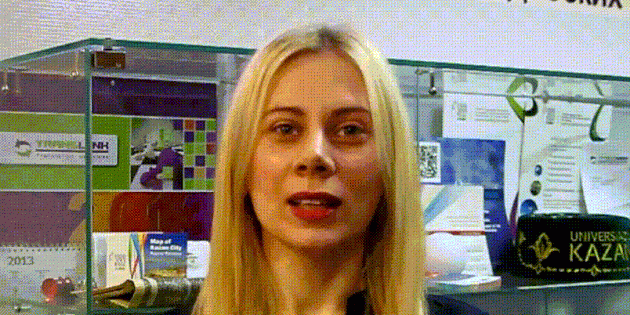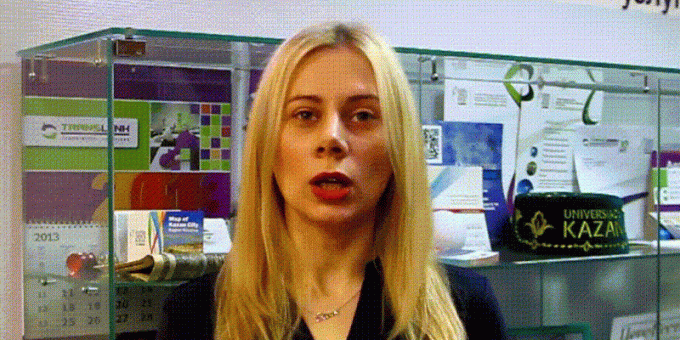6 tips for training the proper English pronunciation
Forming / / December 19, 2019

Elena Britova
Academic manager of the company «TransLink-Education", a certified trainer on speed reading and memory development.
The English alphabet has 26 letters and 44 sounds. If in some languages, each letter corresponds to only one sound, the English one letter can transmit up to four sounds, and in some cases even up to seven. Hence, the favorite saying of the British: "Writing" Liverpool ", and read" Manchester "."
In addition, articulation (movement of the tongue, lips, mouth) differs substantially from Russian. There are sounds that are similar to Russian, but when pronouncing the articulation organs work differently.
If you want to get rid of the accent, or at least closer to the English language, all the differences you need to consider. Here are a few tips on how to put a correct English pronunciation.
1. learn the alphabet
Many adults find it childish exercise. But one day you will always be asked: «Please, spell your name» ( «Tell us your name spelled"). Here and useful knowledge of the English alphabet. In addition, reductions, street names, house numbers and flights can be letters, and, for example, at the airport they will necessarily be pronounced as in the alphabet.
2. Train articulation in the pronunciation of consonants
Once you have mastered the alphabet, safely proceed to the study of the sounds that they convey. Accustom herself to immediately correct articulation. Learn to pronounce the first separate sounds, bring to automatism, and then move on to the words, phrases and sentences.
In English, there are consonants, which at first sight (or rather hearing) are pronounced as in Russian.
1. Check where the tip of the tongue in the pronunciation of sounds [d] - [t], [n], [r], [s], [z]. Rests on the teeth? Congratulations, you say the Russian alphabet. At the root of the English language at this time the tip is at the alveoli (the biggest bump on the upper palate). Try. Now you obtained a purely English sounds. Practice: bed [bed] - ten [ten], not [nɔt], rat [r æ t], sun [s ʌ n], zoo [zu:].
2. Draw a hare in the pronunciation of the sounds [f] - [v]. Upper teeth must be put on the lower lip. Practice: fat [f æt] - vet [vet].

3. Remember that the sound [l] is always hard: London [lʌndən].
4. If sound training [w] Take a candle: it is the best way to learn how to pronounce it correctly. Fold his lips and pull forward (as young children are drawn into a kiss), and then abruptly smile. Then you get this sound. When training hold the candle in the region of 20-25 cm from the lips. If the audio pronunciation of the flame is extinguished, it means you're doing well. Practice: say the word well [wel].

5. Warm hand during training sound [h]. It has nothing to do with the Russian [x]. Imagine that you are a very trying and froze their breath to warm his hands. You bring them to his mouth and exhale. During exhalation generated light, barely audible English sound [h]. As in the word home [h əum].
![Sound Pronunciation [h] Sound Pronunciation [h]](/f/241a6edb9798a295f1be0423b9d8a7fe.gif)
6. Train sound [ŋ] when a bad cold or imagine that you have one. Such a sound in the Russian language is not present, it is passed by a combination of ng in the English language. Push the tongue like a spatula, to the upper palate and let the sound through the nose. A bit like [n] if to say when a bad cold. Do not forget that the language you still regards the alveoli, and no teeth. Practice: interesting [ɪnt (ə) rɪstɪŋ].
7. Stay snake and bee for training [ð] - [θ]. These sounds are not available in the Russian language, and formed by a combination of letters in the English th.
[Ð] - a ringing sound. tip of the tongue gently bite down teeth and say the sound [s]. If during a workout the lower lip and tongue tickled, then you're doing well. If not, perhaps you too much bit their tongue tip, slightly loosen teeth. Say the word this [ðɪs], turns out?
[Θ] - thud. Articulation is the same, only to pronounce the sound [s]. For training thud [θ] pronounce the word thank [θæŋk].
3. Learn the four types of syllables for the correct pronunciation of vowels
vowels Reading depends on the type of style in which they are located:
- open (syllable ends in a vowel);
- closed (syllable ends with a consonant);
- vowel + r;
- vowel + re.
In the first type of style - open - the vowels are read in the alphabet (that's us and handy knowledge of the alphabet!). For example: plane [plein], nose [nəuz], tube [tju: b], Pete [pi: t].
In the second type need to memorize the pronunciation of each vowel:
- [Æ] - open sound, not long. It sends a letter A closed syllable. Check yourself: sit down at the table, straightened up, put one elbow on the surface, brush bend under the chin. Between the chin and the brush you will have a place, of course, if you straighten your back. Now drop the lower jaw down so that it can reach the hand, and pronounced [e]. Practice with the word bag [bæg].
- [E] are often confused with the previous sound. When pronouncing [e] it is only necessary to slightly raise the corners of her mouth up, as it were, with a slight smile. These are two different sound, and they do not like each other, and even more so on the Russian [e]. Practice: pet [pet].
- Brief sounds [i], [ɔ], [ʌ], [u] pronounced intense, not a singsong: big [big], box [bɔks], bus [bʌs], book [bʊk].
In the third and fourth types letter syllables R can not be read, it only forms the syllable and vowel lengthens: car [ka:], sort [sɔ: t], turn [tɜ: n].
[A:], [ɔ:] - special sounds. Imagine that you are at a reception at the doctor who examines your throat. The root of your tongue pressed a stick and asked to say "Ah-ah-ah." It is in such a position should be language in the pronunciation of the sounds [a] and [o]. If you wanted to yawn at the same time, then you are on the right track! Try it now: car [ka:], sort [sɔ: t].
4. Remember the proper accent
Most often in English stressed syllable - first. If you need to say a word, and no one to ask or do not have a dictionary at hand, place the accent on the first syllable. Of course, it is better to remember the words with the right accent or test yourself in the dictionary.
5. Keep in mind four important rules
- In English, there are no completely soft consonants.
- Voiced consonants are not stunned in the end of a word.
- Vowels are long (they are designated in transcription [:]) and brief.
- No unnecessary - especially sharp - lips movements.
6. Advice for practicing any skill: Train!
Learn a few phrases to practice the correct pronunciation:
- Very well [ 'veri' wel].
- World Wide Web or WWW [ 'w əuld' waid 'web www].
- Eleven benevolent elephants [ɪlevn bənevələnt elɪfənts].
- Stupid superstition [stjuːpɪd ˌsuːpəstɪʃ (ə) n].
- Pirates Private Property [paɪrəts praɪvət prɒpəti].
And remember: Different sounds are a distinctive feature. For example, man [mæn] ( «people», «a man") and men [men] ( «males»); ship [ʃip] ( «ship") and sheep [ʃi: p] ( «Sheep") and so on. Many word three ( «three») read like [tri:] (which means "tree") or [fri:] ( «freedom»), without taking Considering that th [θ] is read in a different way, it does not exist in the Russian language (think about exercise "bee"). Knowing the correct pronunciation of words, you definitely will not get trapped!



